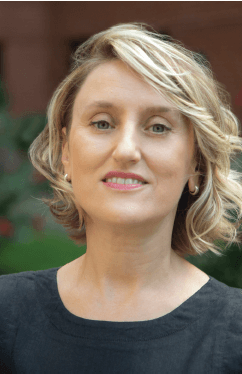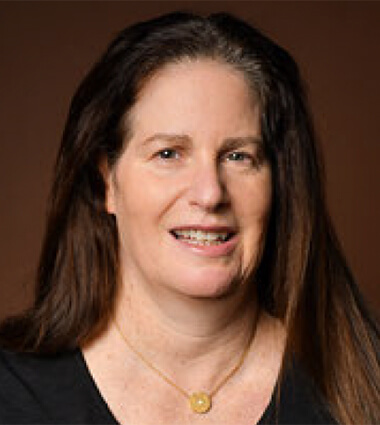Above: Detail from Golan Moskowitz. A Jewish History of Drag?, 2025.
.jpeg?sfvrsn=b251218d_0)
Dar walking through kibbutz fields. Courtesy of Dani Rosenberg
Of Dogs and Men is in many ways an unusual film. It occupies a delicate space between fiction and documentary, created mere weeks after the October 7, 2023 Hamas attacks on Israeli communities. The film follows sixteen-year-old Dar (Ori Avinoam), a fictional character searching for her missing dog in the devastated kibbutz Nir Oz, one of the communities most severely impacted by the attacks. While Dar’s quest provides the narrative frame, the film’s power lies in its documentary elements— real survivors playing themselves, authentic locations, and the raw immediacy of trauma still unfolding.
Rosenberg makes bold formal choices, blending scripted scenes with improvised encounters between Dar and real kibbutz residents. We meet eighty-year-old Natan Bahat, who chose to remain in his home, and a kindergarten teacher organizing the remnants of a classroom where children once played. Through these interactions, the film creates a restrained yet devastatingly intimate portrait of a community in shock. But the film also includes representation of Gaza’s suffering—through distant bombing scenes, animated sequences, and a journalist’s phone call naming Palestinian casualties.
Screening Of Dogs and Men can open a conversation about the recent traumas of war and the mutual recriminations in Israel/Palestine. Additionally, the film is a chance to speak to ethical representation in film and media and the responsibilities filmmakers face when documenting ongoing conflicts. The film prompts vital discussions about whether certain events are “too soon” to represent cinematically and how art can bear witness without exploitation.
Of Dogs and Men is distributed by Menemsha Films, see https://www.menemshafilms.com/of-dogs-and-men.
(documentary, 2023, dir. Moran Nakar, Israel, 58 min.)
.jpg?sfvrsn=235d37af_0)
Opening title card in rainbow colors. Screenshot from Holy Closet.
Recent cinematic portrayals of queer Orthodox Jews challenge assumptions about Orthodox Judaism’s incompatibility with gender and sexual diversity. The Holy Closet, an Israeli documentary adapted from a seven-episode web docuseries, weaves together Jewish lifecycle experiences—dating, family, pregnancy, weddings, birth, mixed relationships, and remarriage—through a queer lens. The Holy Closet subverts traditional narratives by featuring a trans man’s pregnancy, a relationship between religious and secular gay couples, and Jewish celebrations with same-sex partners. Each episode traces characters navigating life milestones while wrestling with religious tensions and personal transformations.
The “Dating” episode features two Orthodox gay teenagers holding hands publicly—defying both Orthodox prohibitions against homosexuality and broader norms discouraging public intimacy. In another episode, a pregnant trans man learns to don tefillin, simultaneously claiming and challenging gendered religious practice. Through these stories, the documentary offers a nuanced yet celebratory portrayal of Orthodox queer lives.
The Holy Closet serves as a valuable teaching resource for courses on Jewish gender and sexuality, either in full or as individual episodes. It prompts fundamental questions: Who counts as an Orthodox Jew? What are the boundaries of Orthodoxy? How do these boundaries shift when challenged? Through these explorations, students can critically examine the evolving nature of Jewish identity and tradition.
The Holy Closet is available for purchase with English subtitles from go2films.com, and streams in open access in Hebrew without subtitles at www.theholycloset.com.
(documentary, 2024, dir. Sandi DuBowski, USA, 1 hour 45 min.)
.jpg?sfvrsn=4970ea10_0)
Amichai Lau-Lavie in makeup and tefillin. Image courtesy of Sandi DuBowski
Through Rabbi Amichai Lau-Lavie’s transformative journey as a queer Jewish leader, Sabbath Queen reveals the varied perspectives and ongoing dialogues shaping modern Judaism. Born to a distinguished dynasty of Orthodox rabbis, Lau-Lavie births the comedic drag persona Rebbetzin Hadassah Gross, a Hungarian widow spouting kabbalistic wisdom. Following theatricality toward self-discovery, Lau-Lavie stages drag rituals and Torah-based storytelling, protests for social justice from Wall Street to Israel/Palestine, leads worship in a “God-optional” New York–based congregation celebrating artists and diversity, and officially challenges halakhic authorities after obtaining a Conservative rabbinic ordination.
Sabbath Queen probes competing meanings of Jewish spiritual leadership—from upholding traditional integrities to empowering new possibilities. Lau-Lavie emphasizes the value of loyalty, of not abandoning one’s congregation; he recalls his grandfather: a Polish rabbi who recited Kaddish with congregants while forced into Nazi gas chambers. Officiating his own community members’ interfaith marriages despite Conservative prohibitions, Lau-Lavie loses his membership in that denomination’s rabbinic assembly. That these actions apparently strengthen his congregation, where he remains an ordained rabbi, is instructive of American Judaism’s multiplicity.
Still, the film boldly asks: Can halakhic Judaism ever truly function when constituents embrace other competing identities? Conflicting truths emerge: halakhic boundaries have enabled crucial forms of communal trust, strength, and clarity but have also perpetuated inequalities, violence, and isolation. Empathy is shown to facilitate boundary negotiations. For example, Lau-Lavie’s brother, an Orthodox rabbi, eventually deems Amichai his “teacher” on the inhumanity of coerced “closets” and comes to welcome women into roles of spiritual authority. Students will be enlightened by how Lau-Lavie’s rebellious queer grappling has creatively straddled worlds while remaining steadfastly invested in Jewish tradition.
For further information about the film, see www.sabbathqueen.com. For screenings, email hello@sabbathqueen.com.

OLGA GERSHENSON is professor of Judaic and Near Eastern Studies and of Film Studies at the University of Massachusetts Amherst. Her most recent book is New Israeli Horror: Local Cinema, Global Genre (Rutgers University Press, 2024).

ORIT AVISHAI is professor of Sociology and Women’s, Gender, and Sexuality Studies at Fordham University, where she is affiliated with the Center for Jewish Studies. She is author of Queer Judaism: LGBT Activism and the Remaking of Jewish Orthodoxy in Israel (New York University Press, 2023).
.jpg?sfvrsn=96a0598d_0)
GOLAN MOSKOWITZ is assistant professor of Jewish Studies and a core faculty member of the Stuart and Suzanne Grant Center for the American Jewish Experience at Tulane University. He is the author of Wild Visionary: Maurice Sendak in Queer Jewish Context (Stanford University Press, 2020).